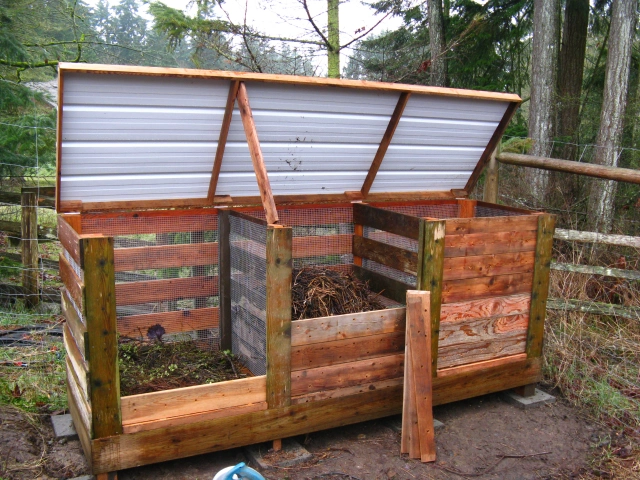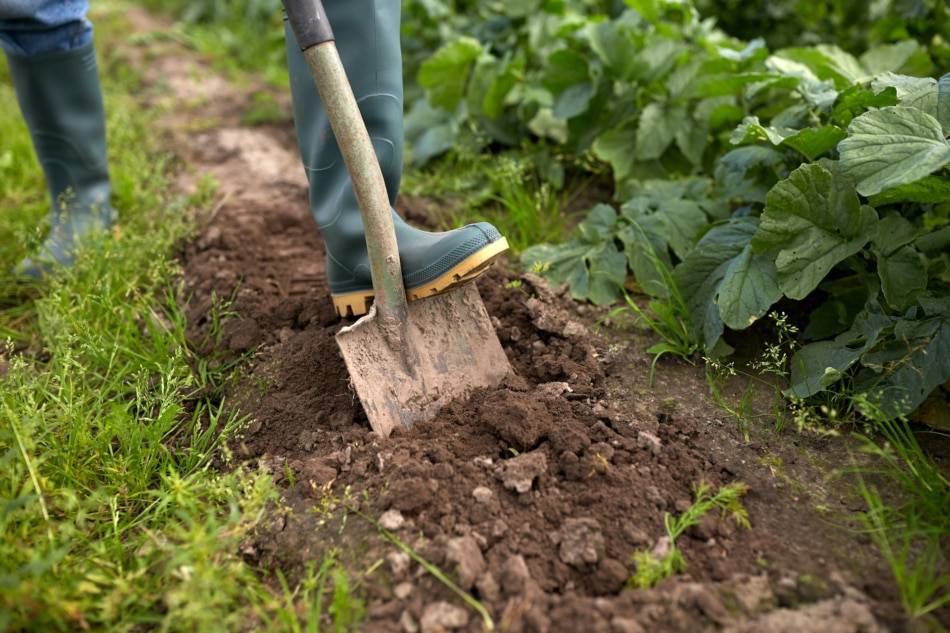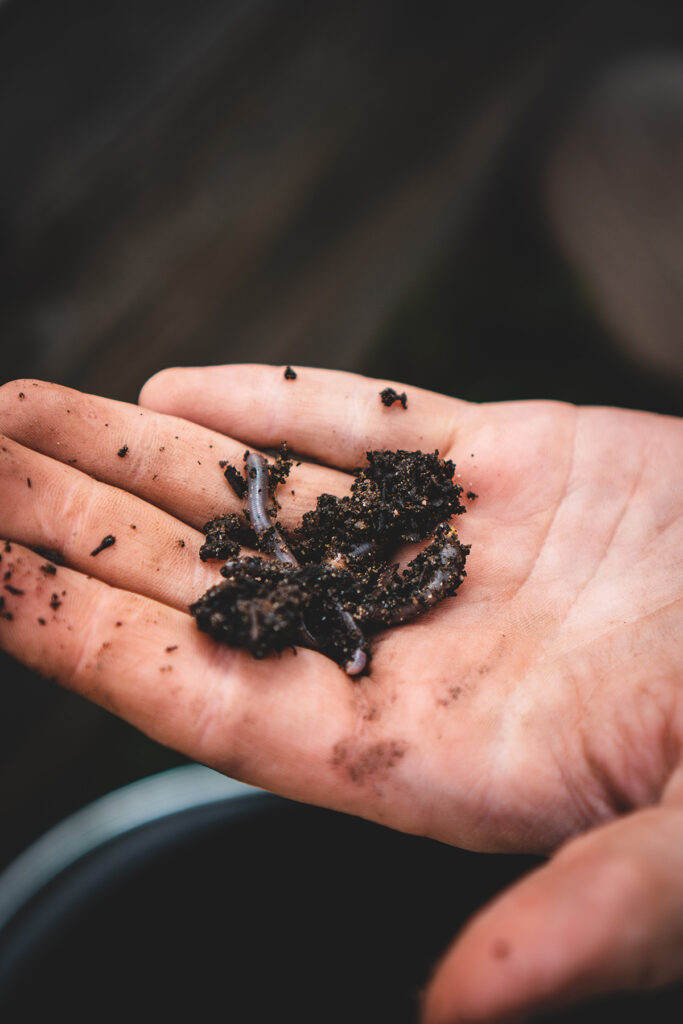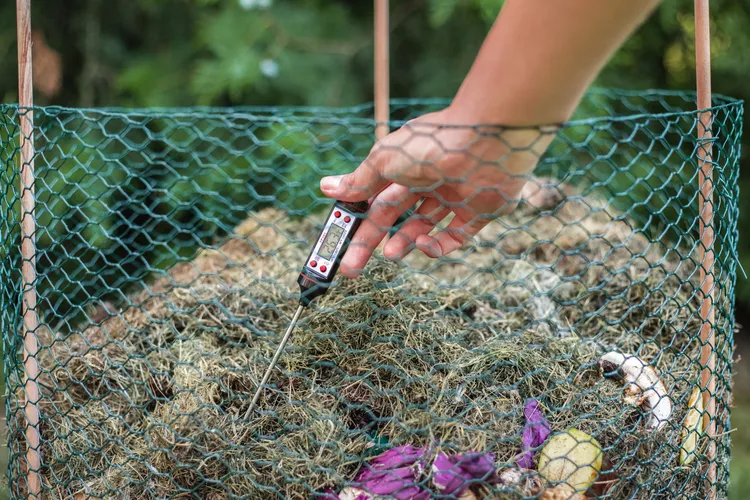Composting is an easy method with several alternatives. Regardless of your living situation, whether you have a large farm or a small apartment, you can participate in composting.
Throwing away food in a world fixated on sustainability is concerning. A friend of mine started a small composting business and saved 111.3 tons of food waste from being dumped, turning it into nutritious compost. This success can inspire you to start composting!
Composting, at any level, reduces the organic waste in landfills, advocating for waste reduction and addressing landfill-related environmental problems.
Here are some composting options with their respective advantages and disadvantages to help you select the best method for your needs.
1. Compost Heap
The simplest method involves dedicating an area of about 25 sq. ft to a compost heap. Layers of organic materials, such as brown (old leaves, bark) and green (grass cuttings, vegetable scraps), are added, followed by soil.
Continue layering until the heap is 4 to 5 ft high. Turn it every 2-3 days with a fork for the first month, maintaining moisture. After tapering off to turning once or twice a month for 3-4 months, you’ll have soil-ready compost. Add a commercially available compost activator for faster results.
Pros of Compost Heap Composting
- Low Cost: Setting up and maintaining a compost heap is inexpensive and doesn’t require special equipment.
- Large Capacity: It can process substantial quantities of organic waste like yard trimmings and kitchen scraps.
- Simple Setup: All you need is a designated outdoor area.
- Nutrient-Rich Compost: Produces compost that improves soil quality and encourages plant growth.
- Natural Decomposition: It relies on the natural process of decomposition, making it eco-friendly.
- Minimal Odor: Properly managed compost heaps produce minimal odors.
Cons of Compost Heap Composting
- Longer Processing Time: Takes longer to produce finished compost compared to some other methods.
- Space Requirement: Requires suitable outdoor space.
- Aesthetics: Some may find it less visually appealing.
- Not Ideal for All Materials: It may not efficiently break down certain materials.
- Pest Attraction: Without proper management, it can attract pests.
- Manual Labor: Requires physical effort for turning and maintaining the pile.
2. Bin Composting
Also known as the “no turn” method, it involves using three bins. You keep adding to the first until it’s full, then move to the next bin. While it’s effortless, it can take as long as 3 years to decompose!

Pros of Bin Composting
- Controlled Environment: You can manage factors like moisture, aeration, and temperature.
- Neat and Tidy: Keeps your compost pile contained and organized.
- Space-Efficient: Suitable for smaller spaces.
- Faster Decomposition: The process often proceeds more quickly than in an open heap.
- Year-Round Composting: Enables year-round composting, even in colder climates.
- Reduced Odors: It tends to produce fewer odors compared to open heaps.
- Easy to Turn: Some bin designs have features that make it easier to turn the compost.
Cons of Bin Composting
- Cost: Can be more expensive than using an open pile or heap.
- Capacity Limitation: May not be sufficient for large quantities of organic waste.
- Initial Setup: It may require assembly and be time-consuming.
- Potential Overheating: In some cases, it can get too hot.
- Maintenance Requirements: Requires regular maintenance.
- Not Ideal for All Materials: May not efficiently break down certain materials.
3. Trench Composting
Also known as “buried composting,” it involves digging a trench roughly 3-feet deep and filling it with compostable scraps, covering them with alternate layers of soil. Leave them for 2-3 months to break down and then plant your vegetables directly into the bed.

Pros of Trench Composting
- In-Ground Composting: Doesn’t require special bins or containers.
- Improved Soil Structure: Enhances soil structure, moisture retention, and nutrient content.
- Odor Control: Tends to produce fewer odors compared to other methods.
- Minimal Maintenance: Requires minimal ongoing maintenance.
- Less Space Required: Can be done in small garden spaces or in rows.
- Good for Garden Beds: Can be integrated directly into garden beds.
Cons of Trench Composting
- Slow Decomposition: Can be slower than other methods.
- Requires Digging: Labor-intensive and may not be suitable for those with limited mobility.
- Limited Capacity: The size of the trench limits the amount of organic waste you can bury at one time.
- Inflexible Location: Once you’ve dug a trench, you’re committed to composting in that location.
- Not Suitable for All Materials: May not efficiently break down certain materials.
- Deteriorating Aesthetics: May not be visually appealing.
4. Worm Composting
Vermicomposting yields nutrient-rich castings and fertile soil, making it perfect for small gardens and apartments. Red wriggler earthworms are used to break down kitchen scraps into castings and nutrient-rich worm tea, which can be used as an organic fertilizer.

Pros of Worm Composting
- Efficient Decomposition: Worms are efficient at breaking down organic matter.
- Small-Scale and Indoor Option: Can be done on a small scale and indoors.
- Nutrient-Rich Compost: Produces nutrient-rich compost known as “black gold” for gardeners.
- Low Odor: Typically produces minimal odors, beneficial for indoor composting.
- Enhances Soil Health: Improves soil structure, water retention, and nutrient availability.
Cons of Worm Composting
- Maintenance Requirements: Requires regular care and attention.
- Initial Setup Costs: Can have some upfront costs.
- Limited Capacity: May not be suitable for processing large quantities of organic waste.
- Slow Processing of Waste: May not be as fast as traditional composting methods.
- Temperature Sensitivity: Thrive in a specific temperature range.
- Potential for Pest Attraction: Can attract small pests if not managed properly.
- Not Suitable for All Materials: Cannot process all types of organic waste.
5. Quick Composting (aka. Hot Composting or Rapid Composting)
Fast composting, or hot composting, quickly converts organic materials into finished compost. This process involves providing ideal conditions for microorganisms to break down organic matter at an accelerated rate, resulting in compost in weeks or a few months.

Pros of Hot Composting
- Quick Results: Produces finished compost in weeks to a few months.
- Pathogen and Weed Seed Reduction: Kills pathogens and weed seeds, resulting in sterilized and weed-free compost.
- High-Quality Compost: Rapid decomposition results in nutrient-rich compost.
- Optimal Conditions for Microorganisms: Creates ideal conditions for beneficial microorganisms.
- Flexible Sizing: Adaptable to different spaces and waste quantities.
- Temperature Monitoring: Allows for temperature monitoring to ensure optimal composting.
Cons of Hot Composting
- Labor and Attention-Intensive: Requires regular turning and attention.
- Higher Initial Effort: May require more initial effort in terms of setup and maintenance.
- Not Ideal for Small Spaces: May not be practical for those with limited space.
- Potential for Odors: Can produce foul odors if not managed properly.
- Not Suitable for All Materials: May not efficiently break down certain materials.
- Sensitivity to Weather: Weather conditions can impact hot composting.
- Skill and Knowledge Required: Requires knowledge of composting principles and techniques.
Regardless of the method you choose, successful composting depends on maintaining the right balance of materials, proper aeration, and moisture levels. With care, you can create nutrient-rich compost to benefit your garden and reduce waste.